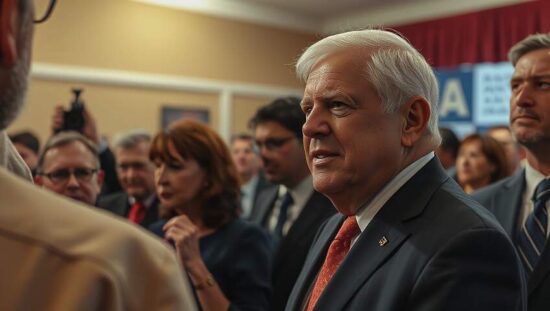The European Commission, led by Ursula von der Leyen, has successfully navigated two separate votes of no confidence within the European Parliament, demonstrating a continued, albeit narrowing, parliamentary support. The motions, brought forward by the right-wing Identity and Democracy (ID) group and a coalition of left-leaning factions, failed to reach the threshold required for dismissal – 360 votes without abstentions – highlighting the complex political landscape within the EU legislature.
The ID group’s motion, garnering 179 votes against a 378 opposition and 37 abstentions, centered its criticism on von der Leyen’s economic, climate and migration policies. Accusations of opacity and alleged censorship were prominent features of their argument, reflecting a broader ideological clash with the Commission’s direction. The ID group’s composition, including figures like Viktor Orbán’s Fidesz and Marine Le Pen’s Rassemblement National, signals a concerted effort to challenge the Commission’s authority, rooted in divergent views on European integration and national sovereignty.
The motion from the left, attracting 133 votes and 383 against with 78 abstentions, underscored a different set of concerns. It targeted von der Leyen’s perceived inaction regarding the humanitarian crisis in Gaza and questioned the recently agreed customs deal with the United States. This motion reflects a rising discontent among progressive members of the Parliament, who view the Commission’s approach to international affairs as inadequate and prioritizing economic considerations over human rights and ethical concerns.
In response to the challenges, von der Leyen appealed for unity, warning against fragmentation that she suggested could benefit Russian President Vladimir Putin. This strategic framing, common in EU discourse, subtly links dissent within the Parliament to external threats and attempts to rally support behind the Commission’s agenda. Leadership of the European People’s Party (EPP), Social & Democrats (S&D), Renew Europe and the Green group publicly signaled their lack of support for either motion, underscoring the continued dominance of the center-right and center-left blocs in shaping EU policy.
Manfred Weber, an influential figure within the EPP, accused Jordan Bardella, a prominent member of the ID group, of exploiting the no-confidence vote for domestic political gain in France. Martin Schirdewan, representing the Left group, cautioned that the margins of victory were shrinking and further motions of no confidence remained a distinct possibility, suggesting increasing parliamentary pressure on von der Leyen. The episodes reveal a fragile consensus within the Parliament and highlight potential vulnerabilities in the Commission’s leadership as the EU grapples with multiple internal and external crises.





